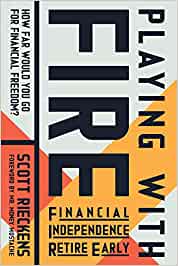
The millennial generation is often characterized by having an incessant need for instant gratification. With new technologies being introduced every year and new services enabling instant gratification, it is no wonder we act the way we do, right? And yes, I too, am a millennial so I can understand how heartbreaking some individuals can feel to not have as many followers as your friends or to not have the coolest pictures on social media. Point is, I am your friend in all of this, not your enemy. In fact, if you add me on Instagram, I’ll add you back 🙂
With that said, I am here to offer some advice.
It seems as though we have grown accustomed to getting what we want, when we want it. This creates a problem, especially when dealing with our personal finances. I understand how stressful or boring it can be to talk about finances and money, but hey, if you want all those cool vacation pictures on your social media profiles, someone has to pay for it, right? The unfortunate truth is that we have let our desire for instant gratification dictate how we approach personal finance.
The Boring Old Truth of Personal Finance
The truth is that the most effective and safe way to build wealth and increase your net worth over time is to save your money, take advantage of compound interest, and manage risk through diversification. Or, in simpler terms, don’t put all your eggs into one basket… Aren’t you glad you didn’t put your life savings into BlackBerry?
Is this approach boring? Yes. Unsexy? Yes. Effective? Absolutely.
The majority of research and literature around wealth creation all lead back to these simple principles and it is those same principles that some of the wealthiest individuals on the planet have built the foundation of their investment strategies.
Ever heard of Warren Buffett? If so, then you probably know he is one of the richest men in the world, but also one of frugality and simplicity. Buffett is clear in his philosophy that managing your personal finances and building wealth can and should be a simple process. As long as you save early and often, invest in what you know and follow your own disciplined set of rules, you will live a (financially) stress-free life.
That Shiny New Thing Won’t Get You Far
Some of the approaches many millennials looking to “strike it rich” take include day trading, investing on margin (which I cover the pros and cons of in this article), cryptocurrency investing and using complicated financial products that often have high returns, but come with a disproportionately high amount of risk. (Remember what we said about managing risk?)
I won’t be getting into the details of these risky strategies because … well frankly, I don’t want to bore you to death. However, when exploring some of these options that are marketed as “easy and simple ways to get rich,” just ask yourself, “If it’s so easy, why isn’t everyone doing it?” If you really want to get your hands dirty and learn about some of these risky, ill-advised investments strategies, our successful friend Warren Buffett has outlined some of these strategies here and explains why you should stay far, far away.
I apologize if I have “burst anyone’s bubble” or “shattered their confidence in becoming the world’s best day trader” but we believe everyone deserves to have a chance at posting the best vacation pictures … We just want to help you get there, financially speaking of course.
The simple strategies of Buffett and other successful investors strategies have stood the test of time so I don’t think I need to convince you any more than I already have. If you have any doubts, just ask your parents or financial advisor and if they are saying anything different, you may need to fire your advisor and …well you can’t fire your parents, can you?
The Five Rules of Investing
If you’ve read so far, you probably get the idea. Investing is a long term endeavour and there is no magic trick to get rich quick. However, there are rules that can help you avoid mistakes on your long journey to becoming wealthy or just financially happy.
- Save and invest money every paycheck and do so consistently. Some fancy-shmancy people call this “Dollar Cost Averaging” or “DCA”, but that’s just a special way of saying “Invest a little bit of money on a consistent basis”.
- Use time to your advantage. Make sure you are investing as early as you can to take advantage of compound interest. Want to know the difference between $10,000 invested when you’re 25 vs. when you are 40? Take a look here and you’ll understand the importance of starting early.
- Manage your risk through diversification. This essentially means to spread out your investments or to “not put everything into one basket.” You might be telling yourself, “But if I invested all my money into Apple, I would be rich!” Fair enough. Although, I would counter by asking “What if you invested all your money into Enron or Nortel or Kodak?” (Haven’t heard of some of these companies? There’s a reason why) One of the best ways to diversify your money? Index-tracking ETF’s. Check out this article here explaining how to use ETFs to your advantage.
- Be disciplined in your financial management. Make a plan and stick to it. Will this mean you can’t buy that $200 pair of shoes this week? Maybe. Will your future self thank you for foregoing making a purchase you will likely forget about in 6 months? Definitely.
- Be aware of fees. Fees have historically lined the pockets of banks and financial institutions for decades. Many individual investors are just now becoming aware of this and people are starting to realize that investment fees can start to have dramatic impacts on retirement savings. Always be aware of fees and never invest your money where you are not comfortable.




















About The Author: Jamieson Westover, guest writer
Jamieson has a burning passion for personal finance and cutting through all the bullshit of the financial system. As a recent graduate in Economics and Finance, and as a current Business Analyst with Sun Life Financial, Jamieson continues to invest both his time and money in educating the people around him about money, money, money. Otherwise, he enjoys everything fitness, health and nature.
More posts by Jamieson Westover, guest writer